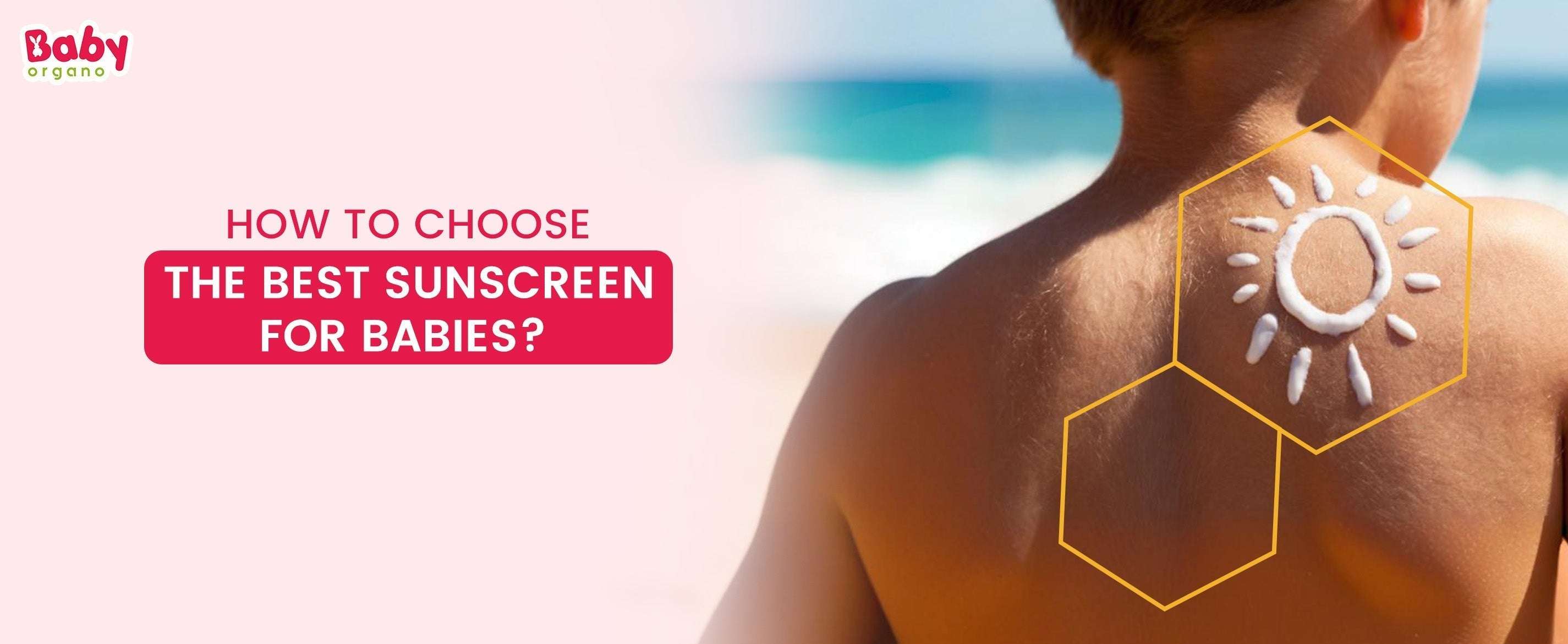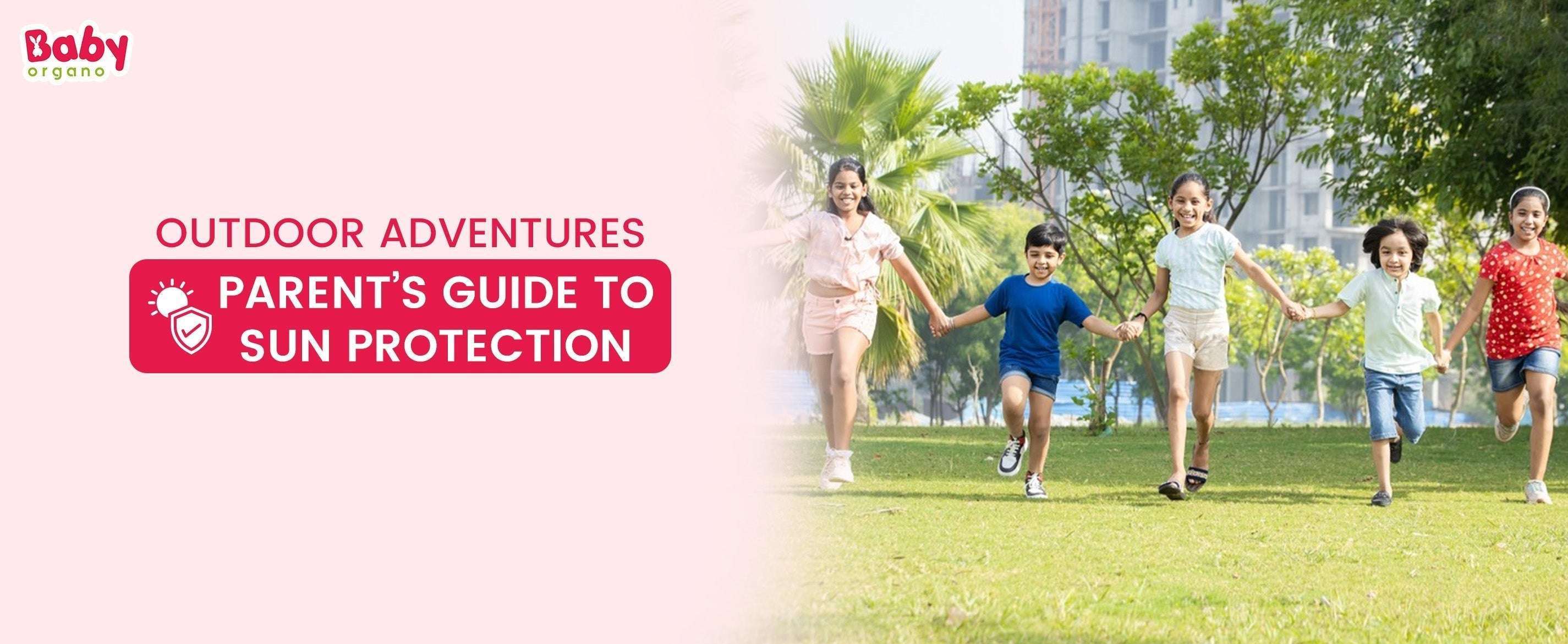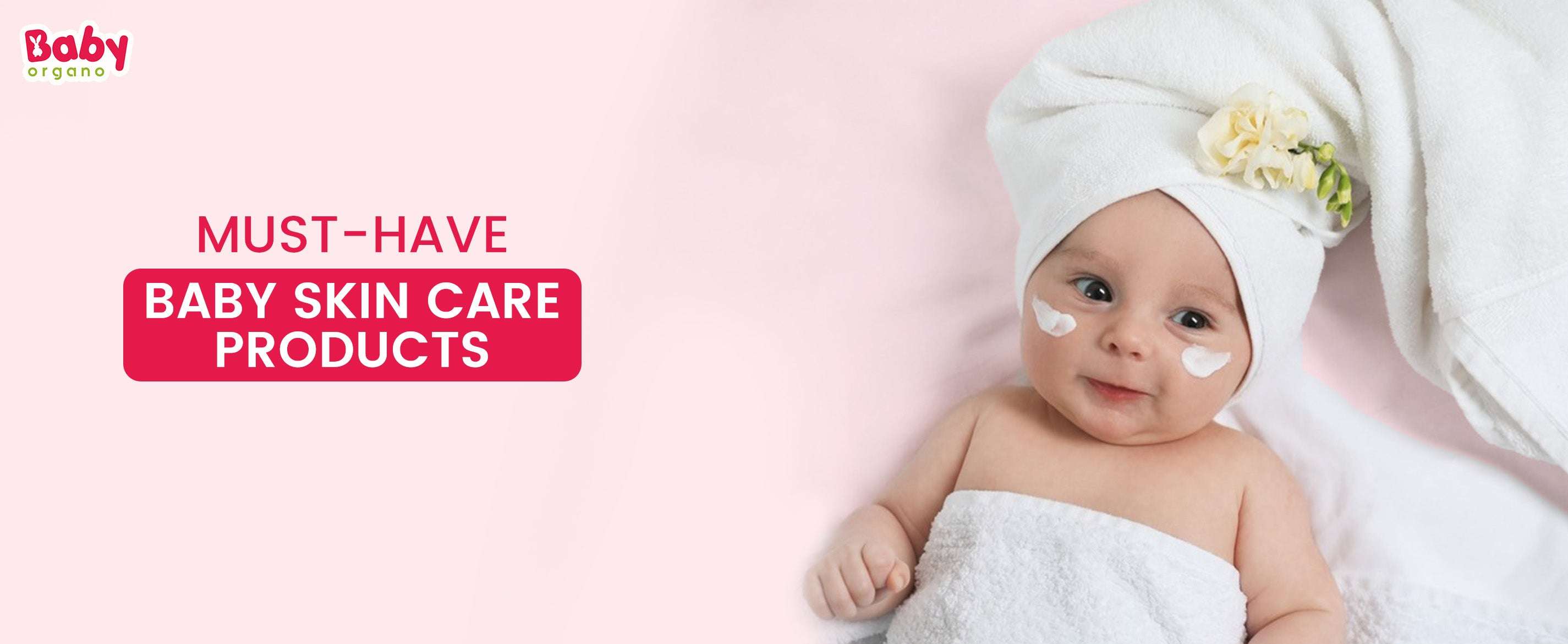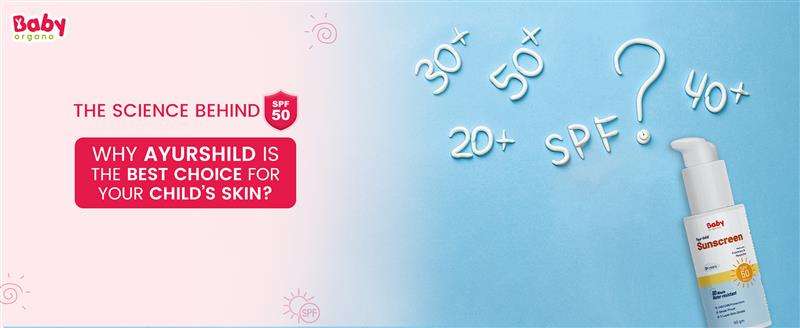Tips to Improve Hair Growth of Baby Naturally
- by Baby Organo

Parenting is difficult for all parents but enjoyable, particularly when caring for a newborn baby. This new stage of life teaches you much.
Undoubtedly, newborns and children are angels. No matter what they look like. Every newborn with straight, wavy, or curly hair is gorgeous and distinct. The way each baby's hair grows might be different. Some of the babies are natural born with full heads of hair, while others only wisps. Babies usually have less hair for the first six months, so do not worry.
Genes largely determine your baby's hair, skin, and growth pattern. A healthy diet and simple hair care routine might help them grow their hair.
This post offers ways to keep your baby's hair silky and healthy while growing it. This post may only help your baby's hair grow to its full potential because hair length and thickness rely on many things.
Tips for Increasing the Growth of Baby Hair
After a certain age, a baby's hair typically returns to its normal texture and colour. Additionally, if you would like your baby's hair to grow healthier and faster, here are some significant suggestions:
Use coconut oil
The antioxidant vitamin E is abundant in coconut oil due to the oil's natural occurrence. It helps the skin, and it can help the scalp get more blood, which means more hair growth.
This nourishing hair oil for babies may halt hair loss and make hair shine. Researchers in a previous study discovered that using coconut oil as a hair wash or styling product was beneficial. Mixing it with sunflower and mineral oils helps slow hair protein loss.
Try giving your child many weekly head massages with coconut oil if you want their hair to grow fuller and thicker. This baby hair oil may help remove the cradle cap and moisturise their hair.
Choose organic or extra virgin coconut oil. Apply a little oil to your baby's scalp and wait 20 minutes.
Give your baby a scalp massage
A scalp massage is helpful in hair growth and be a wonderful salon experience. The gentle massage increases scalp blood flow, helping your child grow thicker hair follicles.
Use our natural baby hair oil to massage your child's scalp before bath or bedtime. Let the oil moisturise their delicate scalp by laying them on a towel to absorb excess product.
In addition to hair development, a full-body massage with our Baby Oil will relax you before bed. Your youngster will settle and improve their flexibility and motor abilities.
Our oil's comprehensive benefits promote your child's health. Natural nourishing hair oil for babies makes scalp massages soothing and beneficial.
Brush kids' hair regularly
To avoid knots, parents should brush their baby's hair often. For healthy growth, brush your baby's hair every two days using a gentle brush.
Be careful not to tie, bow, or clip the baby's fine hair. Minimise accessories and let your baby's hair flow. This method soothes the baby and fosters healthy hair growth. A gentle brushing routine and avoiding tight accessories can keep your baby's hair healthy and comfortable.
Maintain a regular hair wash routine
Washing your baby's hair frequently will keep their scalp clean and help release the cradle cap, even though you may be concerned about it.
After your kid grows out of the "Newborn phase," when you only need to bathe them once every seven days, you can increase the frequency to every two or three days. Mild baby shampoo and lukewarm water are the best options.
Babies whose scalps get a filth buildup may experience a hair growth delay due to dryness.
Apply a hair conditioner
Like your hair, your baby's delicate hair needs care. Since shampoo removes oils, conditioner is necessary. Hair conditioner moisturises and protects. Reduced breaking leads to healthy growth.
A moderate, tear-free conditioner is essential for babies with dry, textured, or curly hair. More frequent conditioning helps these hair types stay hydrated and manageable. Rinse your baby's hair with warm water after shampooing, effortlessly incorporating this step.
Choose a gentle, safe child-specific conditioner. This thorough selection ensures that the conditioning process is successful and irritant-free. Adopting this hair care practice promotes external well-being, comfort, and bonding with your child.
Gently handle the hair
Preventing breakage requires preserving your baby's fragile hair. The delicate strands require attention when washing and brushing. Use a soft towel to dry hair after bathing to avoid stressing the weak follicles.
Separate with a soft brush or your fingers to avoid breaking. Avoid rough-drying or rubbing your baby's hair, harming the fragile follicles and hindering hair growth. These gentle methods help your baby's hair stay healthy and strong, making grooming fun and easy.
Keep to a balanced diet
Both mother and baby need sufficient nourishment during nursing. Nursing mothers can safely eat mango, pumpkin, butternut squash, and carrots. These foods boost vision and immunity with vitamin A. Eating complete grains, potatoes, beans, and eggs gives B vitamins for overall wellness.
Hair and nail growth require biotin (vitamin B-7). Iron in leafy greens nourishes and oxygenates hair follicles. Iron, prebiotics, probiotics, and vitamin D are other good formula choices.
Consult your paediatrician before giving your baby solids between four and six months. This eases the adjustment and identifies allergies. Pureed fruits and veggies provide your infant with vitamins.
The nursing mother and her newborn need a varied, nutrient-rich diet. Medical advice helps mother and baby get the right nutrients for health and development.
Spread gelatin on your infant's scalp
The amino acid gelatin can promote hair growth when administered to a baby's scalp.
Add 1 tsp water to gelatin powder. Sweeten with a teaspoon of honey and apple cider vinegar. Honey's antioxidants nourish hair and scalp. Apple cider vinegar grows hair.
Let the gelatin mixture sit for 10 to 15 minutes after applying it to your baby's scalp. Wash your baby's hair normally after rinsing off the gelatin.
Hair drying with a soft towel
Use a soft and gentle baby hair towel on your child's scalp to dry their hair after a wash.
Babies can experience hair loss if you stroke their hair. You can easily dry their scalp by patting or rubbing it towards their face. Being gentle is always the best method to promote newborn hair growth!
Never tightly tie hair
Your baby's curly or face-framing hair may be difficult to style. Their hair may be in a ponytail or bun. Pulling your baby's hair too firmly might damage or cause hair loss.
The most important thing is to be gentle with the hair and not always touch the face. Try using a baby hair oil or conditioner to maintain order and control the curls. You can even utilise a loose hair tie or a silk head-band to better secure your baby's locks.
Put some aloe Vera gel on
Aloe vera's hair and skin benefits make it a mild and natural solution for your baby's scalp. Aloe vera gel nourishes your baby's scalp with enzymes that promote hair follicle growth. Aloe vera soothes and nurtures newborns when applied directly from the plant or as a baby product.
Avoid your baby's eyes and mouth when applying scalp aloe vera gel. Wash your baby's head gently with lukewarm water after 10 minutes to eliminate aloe vera residue.
Before applying infant scalp aloe vera, do a patch test. This simple method ensures that their skin responds effectively to aloe vera's natural benefits, giving them confidence to use it in their skincare routine. Aloe vera, a trusted hair and skin treatment, is soothing.
Select appropriate hair care items
Infant hair growth requires a cautious approach, emphasising the importance of hair care products. Shampoos and conditioners for adults include harsh chemicals that are especially harmful to infant hair. Baby-specific hair care products are essential to protect delicate strands.
Using infant-specific products guarantees a gentle yet effective cleansing routine without irritants that may hinder hair growth.
Study product labels and learn about their components to ensure your child's safety. Prioritising proper products is a minor but important step in protecting and growing your child's sensitive hair.
Achieve tangle-free hair
New difficulties may arise when your baby's hair starts to grow, and one of them is likely to be detangling their mane.
However, there is a science to make detangling your child's hair painless and effective. Smooth your baby's hair using a detangling spray or conditioner after a moderate shampoo.
Be careful and find something to occupy them while gently brushing or combing their hair. Separate your hair into sections and search through each, starting at the ends and moving towards the roots.
Also, while you are at it, give our Skin Freshener a shot; it works wonders on both the skin and hair of your little one.
Cut or trim the baby's hair
Giving a baby a haircut is a big deal for some parents. But if your infant is experiencing thinning hair or bald patches, a trim can smooth the hair growth and make it look more natural.
That a haircut can stimulate new hair growth is an urban legend. But science doesn't support this notion.
Cut the longer hairs off your baby initially if you are thinking of cutting their hair. Baby's scalp is quite delicate; thus, it is best not to use a razor around them. Switch to a hair trimmer.
After cutting the baby's hair, moisturise to avoid scalp dryness.
Also Read: Five natural ways for baby hair care
Key Takeaways
Genes, food, hair care, environment, and well-being affect your babies' hair health. Applying baby hair growth oil and following hair care tips correctly will help your child grow healthy with beautiful hair.
If you are worried or highly anxious about your baby's hair development or scalp, visit a paediatrician or dermatologist for having a clarity on the issue.
- Posted in:
- Parenting tips





